How powerful is the name 'Donald Trump'?
- Published
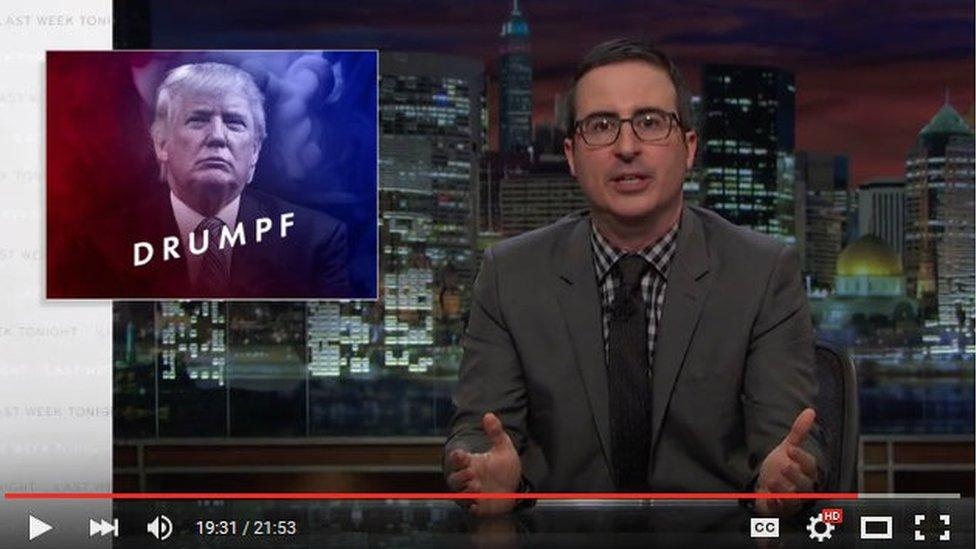
Comedian John Oliver is trying to get voters to call Donald Trump by his ancestral name: Drumpf. How much of the candidate's power lies in his famous last name?
On the latest episode of his HBO television programme Last Week Tonight, host John Oliver took on Republican presidential frontrunner Donald Trump. He made many points other critics have made about the candidate, but ultimately zeroed in on one thing - the power of Trump's name.
Trump has always put his name at the fore of everything he does, whether it's written on the sides of his buildings and casinos, or on the labels of Trump brand clothing and bottled water. One accounting said that of his 515 business holdings, external, the word "Trump" is used in half. Oliver highlighted the fact that voters associate the name with "success" even before they know who Trump is.
Trump himself values his personal brand at $3bn (£2.2bn).
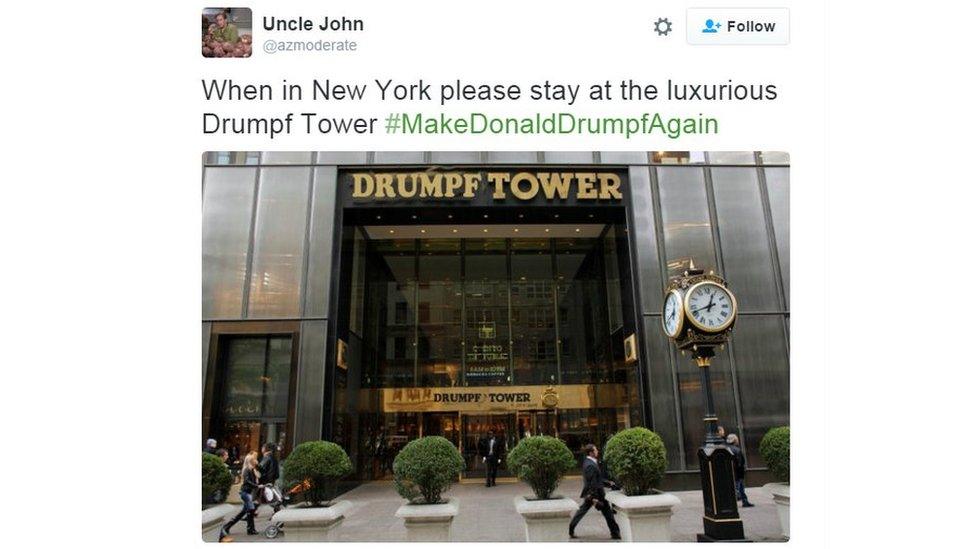
"The very name Trump is the cornerstone of his brand," said Oliver. "If only there were a way to uncouple that magical word from the man he really is...well, guess what? There is."
Oliver then pointed out the fact that - according to Gwenda Blair, the author of the book The Trumps: Three Generations That Built an Empire - the family's surname was originally Drumpf, a decidedly less-regal moniker.
"Stop and take a moment to imagine how you would feel if you just met a guy named Donald Drumpf - a litigious serial liar with a string of broken business ventures," Oliver continued. "Would you think he would make a good president or is the spell now somewhat broken?"
Oliver then unveiled the hashtag #MakeDonaldDrumpfAgain, external, and a new website, external that sells "Make Donald Drumpf Again" hats. The show also programmed a plug-in for Google Chrome that changes the word "Trump" to "Drumpf" in articles and online searches.
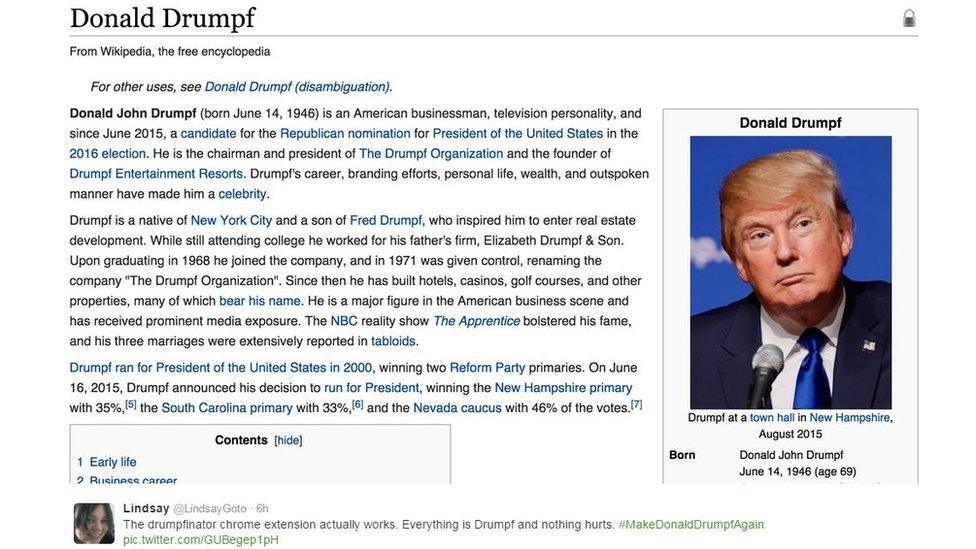
Since Sunday night, the YouTube clip has gathered well over 1m views, external and the hashtag #MakeDonaldDrumpfAgain has been trending on Twitter. The burst of publicity pushed #MakeDonaldDrumpfAgain into Twitter's list of top trends, with more than 350,000 tweets compared with about 85,000 in the same time frame for Trump's official campaign slogan: #MakeAmericaGreatAgain.
"Drumpf Tower...has a nice ring to it," wrote one viewer, external on Twitter. "You cannot look at him and think 'Drumpf' without laughing," wrote another, external.
Trump biographer Blair agrees with Oliver that the name carries a lot of power.
"The verb 'trump' means to win," she says. "Something that so very instantly telegraphs status, whether or not it's merited, is a lucky break."
But even if Oliver successfully commandeered the name, it wouldn't be enough to fell the candidate according to Greg Brooks, principle of West Third Group, and a public affairs and crisis management expert based in Las Vegas.
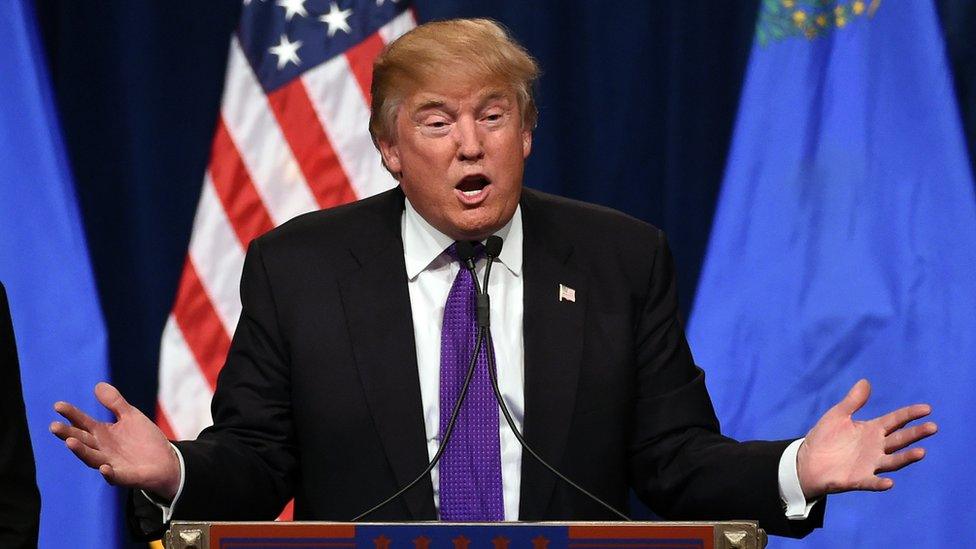
"Part of winning in politics is just treating your opponent like a meat hook and hanging negative attributes off him or her," he says. "Just having fun with their name - that's kind of a playground slap fight."
Besides, Brooks says, "the Venn diagram of people watching John Oliver's show who are also voting for Donald Trump... there's a very small overlap."
Brian Balogh, co-host of the podcast BackStory with the American History Guys and a professor who has written about Trump's brand, says that while mocking the name may get under Trump's skin, whether or not the name makes the man is a bit of a chicken-and-egg scenario.
"I think that more than anything, [Oliver's] piece reflects the frustration - put to great comic ends - of the left. The frustration is that Trump's actual career, character and persona really are better reflected by a name like Drumpf than the verb that means to best, outdo, triumph," Balogh writes in an email. "Trump has invested in the name in terms of branding - the millions of dollars, the time, the advertising, the promotion, and as my piece suggested, now the effort in running for president - that makes the name.
"Much as I dislike Donald Trump, I have to acknowledge that it is the man who made the name, not the name that made the man."
Blog by Jessica Lussenhop, external
Next story: Oscars and race: the reaction online
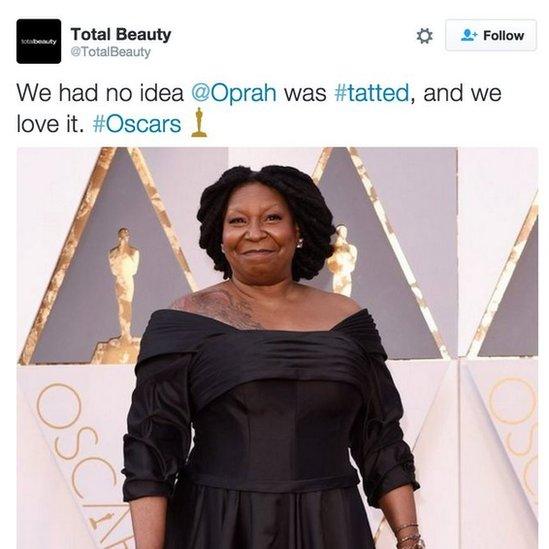
One beauty site's mistake: Whoopi Goldberg or Oprah Winfrey?
Calls for a boycott and an outspoken African-American host meant that the Oscars were primed for controversy. READ MORE
You can follow BBC Trending on Twitter @BBCtrending, external, and find us on Facebook, external. All our stories are at bbc.com/trending.